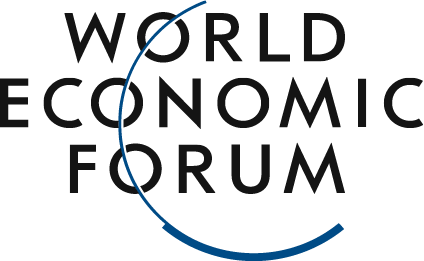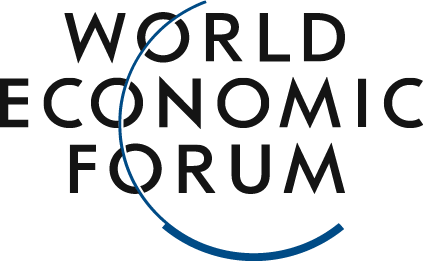

Are we facing a future marked by low employment rates and an uncertain, AI-driven outlook?
Image source: Getty Images/iStockphoto
Maha Hosain Aziz
Professor of International Relations at New York University
With the rise of artificial intelligence, millions of people may face the risk of losing their sense of purpose, identity, and social belonging.
The psychological burden caused by sudden job losses resulting from artificial intelligence remains largely unresolved.
If we want AI to be remembered as a tool for human prosperity—rather than as something that leads to widespread human alienation—we must not only plan for the jobs and career opportunities AI will create, but also address the potential instability it could bring.
When we were young, we always dreamed about what we’d do when we grew up. But in the age of artificial intelligence, many of those dreams are being rewritten—and even erased altogether. Even for individuals who’ve already built successful careers or established themselves in their fields, AI is quietly reshaping industry norms. Globally, discussions largely revolve around productivity gains, competitive advantages, and regulatory challenges—while some are enthusiastically celebrating AI’s potential to create new job opportunities. But what about the groups that remain overlooked? The psychological impact of sudden job losses caused by AI remains largely unaddressed. Without work, who will we become?
The Impending Global Identity Crisis
It’s time to shine a spotlight on the looming global crisis of occupational identity—because when people lose their jobs, they often find themselves grappling with a profound sense of lost purpose, disrupted order, and severed social connections. These unemployed individuals typically face insecurity, marginalization, and heightened anxiety. They’re not just struggling with unemployment or underemployment; as their income vanishes, so too can their sense of identity and personal meaning—leading to serious mental health challenges in the process.
Over the past two years of my work, I’ve consistently highlighted that the career identity crisis triggered by artificial intelligence has been a blind spot in global risk planning. Recently, this issue sparked urgent discussions at the meeting of the World Economic Forum’s Global Foresight Network. In short: the identity crisis is very real—but it remains significantly underestimated.
Predictions regarding unemployment rates and timelines vary widely. Some tech leaders, like NVIDIA’s Jensen Huang, believe AI will create more, and even "higher-quality," job opportunities. Others are less optimistic. Anthropic CEO Dario Amodei warns that AI could displace half of entry-level white-collar jobs within one to four years. Meanwhile, the International Monetary Fund cautions that 60% of jobs in advanced economies are already being impacted by AI, while this figure rises to 40% in emerging markets. The Inter-American Development Bank’s AI Job Exposure Index reveals that 980 million jobs worldwide face a high risk of disruption over the next year. Additionally, the World Economic Forum’s “Future of Jobs 2025” report indicates that 41% of employers plan to cut staff by 2030 due to the growing influence of AI.
The pillars of work are being disrupted.
These numbers reflect the economic turmoil. Yet, we rarely connect these dots to what’s likely to happen next—millions of people have not only lost their income but also the very foundation that jobs once provided. What happens when our educational backgrounds or years of professional experience no longer carry as much weight? Many may soon face a stark choice: either scramble to "learn AI" in order to stay competitive—or risk being left behind entirely, unsure of where they’ll fit in the rising tide of the AI-driven economy. As certain professions gradually become obsolete, countless individuals could feel increasingly marginalized—and this, in turn, might reignite public frustration with the government.
This disruption won’t happen all at once—it will arrive in waves.
First wave:Traditional automation continues to replace routine, manual, and service-oriented jobs.
Second wave:Generative AI has already reshaped content creation, routine cognitive tasks, and repetitive knowledge work across fields such as marketing, law, finance, and technology.
Third Wave:Agent-based AI is now capable of performing multi-step tasks without human input, which will impact jobs in areas such as human resources, market research, and IT support. Ultimately, it could even replace mid-level and managerial roles, reshaping organizations across the board.
:By 2030, artificial general intelligence will be capable of handling most cognitive tasks, potentially replacing certain professions. Superintelligent AI could follow closely behind, surpassing even human capabilities.
Each wave of automation will displace a portion of the global workforce. The challenge isn’t just about reemploying these workers—it’s also about helping them adapt to the future, where their previous skills or identities may no longer matter. In fact, we’ve seen this kind of transition before: from post-coal Britain to post-industrial American towns, where job losses led to deteriorating mental health among many, escalating substance abuse, and even creating fertile ground for political extremism. The AI-driven wave could replicate these dynamics—but not only that; its scale will be far greater, spreading across the globe at an unprecedented pace. In some ways, it might even trigger a full-blown "tech shock."
Are we ready? Many governments and businesses have invested heavily in AI strategies, with a strong focus on innovation, education, and skills development—critical areas indeed. Yet, few are prepared for the psychological needs of the future. Who will step up to address the unique challenges posed by the AI wave: the pain of job displacement, the risk of societal alienation, and the potential erosion of public trust?
From Risk to Response
In the age of artificial intelligence, the new human-centered social contract must prioritize dignity and identity—just as crucially as employment itself. This means:
Promoting mental health care
A Reimagined Social Safety Net
Through concrete measures such as basic income, citizen’s allowance, or job security
Combining lifelong learning with a sense of lifelong belonging
This also means recognizing that the loss of professional identity is a genuine global risk, not merely a side effect. It must be integrated into workforce transformation initiatives—rather than being left for families and individuals to tackle on their own.
We can try two approaches:
Unemployment Relief Lab:Within this cross-sectoral hub, government, businesses, and civil society can test intervention strategies in these labs—specifically designed to support populations at risk of AI-driven job displacement. These initiatives will integrate mental health care, retraining programs, and community-building efforts, all aimed at safeguarding individuals' livelihoods and sense of identity.
Purpose-driven Universal Basic Income:The evolution of universal basic income aims to restore purpose, belonging, and meaning beyond formal employment—whether through civic projects, creative activities, or skill-sharing networks.
Perhaps we need a new global metric: an AI Anxiety Index, to track how job displacement is impacting society’s mental health—and to help us develop timely interventions.
The unemployment brought about by the AI wave may not make headlines like billion-dollar chip deals or groundbreaking models—but it will shape the political, social, economic, and security landscapes of the next decade. If we want AI to be remembered as a tool that fosters human prosperity rather than fostering widespread alienation, we must start planning now—not just for the jobs AI creates, but also for the dreams it could erase.

The above content represents the author's personal views only.This article is translated from the World Economic Forum's Agenda blog; the Chinese version is for reference purposes only.Feel free to share this in your WeChat Moments; please leave a comment at the end of the article or on our official account if you’d like to republish.
Editor: Wang Can
The World Economic Forum is an independent and neutral platform dedicated to bringing together diverse perspectives to discuss critical global, regional, and industry-specific issues.
Follow us on Weibo, WeChat Video Accounts, Douyin, and Xiaohongshu!
"World Economic Forum"


